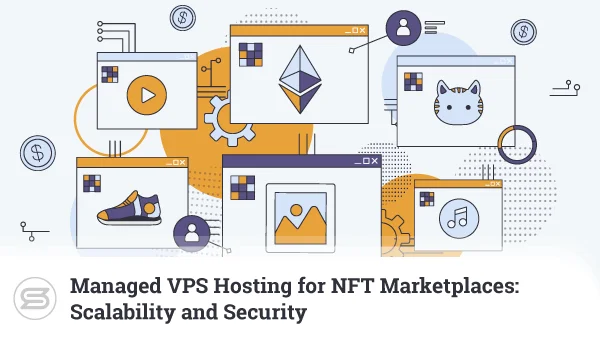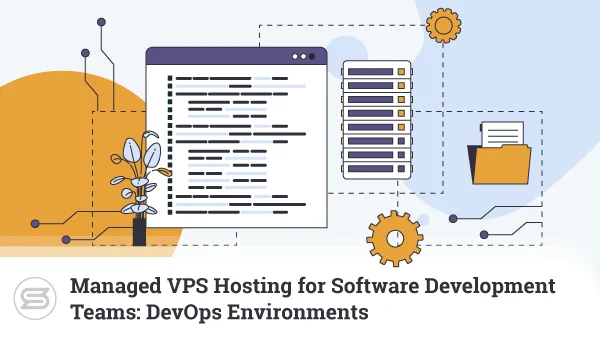Nowadays, there are plenty of options to host your website in terms of your IT infrastructure. You could trust a hosting provider, buy your own server, or choose a combination between the two.
Our comparison today is between two of the most popular hardware models — managed hosting vs colocation.
The main difference here is who owns and takes care of the server. In the colocation model, the client gets a dedicated rack in your host’s data center. All administration and management are entirely their responsibility. Whereas in managed hosting, you are simply leasing the server, letting the provider do all the technical work — monitoring, hardware replacement, software updates, etc.
To understand things better, let’s check out the characteristics of the two types of hosting services.
What is Managed Hosting?
Managed hosting is actually not a separate niche per-se, as it encompasses different kinds of services. VPS solutions, dedicated servers, cloud platforms — they can all fall in this category, provided they have one key ingredient.
Professional support!
As long as you can take advantage of your host’s trained server administrators, support staff, or customer care operators — your service falls into the managed business model.
Scala Hosting company ensures full hands-on assistance on all managed VPS plans. They take care of technicalities like initial setup, operating system installation, security patches, server optimization.
You can check out more about the differences between managed and unmanaged VPS servers in our detailed review.
Managed Hosting Advantages
Looking at the benefits of the managed hosting model, a few things clearly stand out:
Cost
This is a big factor that seriously tips the scales in favor of managed services. On the one hand, you are just leasing a server and paying your provider administration and maintenance costs.
On the other, you need to buy a server, which is in itself significantly more expensive. And that’s just to get you started. Then come the additional hardware and software licenses, data security, fiber connectivity — all of these mean extra costs for you. Managed hosting takes another huge load off your budget — the IT overhead.
Imagine just how much money you’ll need for hiring or training experienced server administrators, support staff, disaster control employees? All taken care of, when you have a reliable managed hosting provider.
Expert support
The other make-or-break factor when it comes to deciding between the two server models. Even if you already have an IT department, that doesn’t guarantee you have enough resources to colocate your hardware.
You have to choose a nearby data center location. This is because your physical presence will be required not only during the initial setup, but any time something goes wrong. Some server part might need replacing as well.
This is where managed hosting saves a lot of headaches. There is no need to constantly worry if you have the workforce to handle your project and can concentrate on the business side of things.
In the meantime, your host’s expert support will take care of the daunting tasks:
- OS installation
- software setup
- hardware replacement
- issue resolution
No technical expertise needed
If this is your first time dealing with a web server, managed hosting is a no-brainer. It’s the go-to solution for startups and small businesses with no dedicated IT team. Even though there is plenty of documentation online, managing your own hardware is no walk in the park.
You can put the big books away if you opt-in for managed hosting services. The provider will ensure your server is constantly monitored and there are no threats to your smooth website operation. Even if you want to install a new plugin or change your OS configuration, a simple contact to your host will have things covered.
What is Colocation?
In the colocation model, all you’re getting from your provider is a dedicated place in their data center. Customers are renting the space, power, cooling, and physical security. Additionally, the colocation carrier can assist with networking equipment and connectivity issues.
That’s the beauty of colocating your hosting — you have a powerful partner, while you remain in full control.
Here are some of the things that you can expect from your colocation provider’s facility:
- Cabinets and cages for your server racks
- Power and fiber cables for optimal connectivity
- Sensitive fire protection systems with passive and active elements
- Advanced cooling systems and air conditioning for balanced humidity
- Low-impedance electrical ground
- Little to no windows
- Military-grade security: motion detectors, fingerprint scanning, biometrics
Still, colocating your web servers comes with a lot of responsibilities from the client’s side. Imagine it’s 3 am, and you get an alarm that one of your hard disks has been damaged. In this situation hundreds of client websites are down. You’d have to have someone travel to the colocation data center facility and manually swap the damaged drive with a new one.
And that’s only one of the many issues that might require your swift reaction and active assistance.
That’s why colocation services are best suited for larger enterprises, hosting carriers, and telecommunication giants. The model often involves massive financial investments and an optimized workforce, something that startups and SMBs can rarely afford.
Colocation Advantages
Now that we know the essentials of the colocating solutions, let’s revise the advantages of choosing this hosting model:
- Equipment ownership — web hosting providers often utilize similar types of web servers as they’ve found the configuration optimal for the general scenario. But what if your project requires more than the standard setup?
Owning your hardware means you can configure the machine and scale it as you wish. This way, you can easily react to sudden demands and better plan your business growth.
- Complete control — Next to hosting your machine in-house, colocation is the closest you can get to full control and freedom of customizations. Starting from the choice of operating system and server caching technology, you can tweak every little detail to perfection.
Once you’re done, you leave everything behind the impenetrable walls of your colocation carrier. In short, if you know what you’re doing, this is the best way to maximize the performance of your web project.
Conclusion
If you’re looking for high-quality network infrastructure, managed hosting and colocations are some of the most viable options. The two models are similar in the way that you employ the data center facilities of top-tier carriers to store and power your hardware.
There are some significant differences as well:
- Colocation solutions are much costlier overall. Though owning your server can prove more cost-effective in the long run than leasing one.
- Managed hosting solutions include expert support assistance from your host, including hardware replacement, software installations, security upgrades, and more.
- Colocation services give you full control over the server, letting you utilize its resources as you wish.
Which one is better for you?
If you are looking to establish your online business and don’t have the time and technical knowledge to host it yourself, managed services are your logical solution. This model includes all the IT support you’ll need while going easy on your budget.
Large enterprises and sophisticated web projects don’t mind the cost as long as they get a reliable service with full control over the hardware. This way, their in-house administrators can tweak the hardware and software to best serve your goals.
FAQ
Q: What is the difference between a data center and a colocation?
A: There isn’t any actual difference between data center and colocation as they aren’t really comparable. The colo model means you are the sole owner of the web server and fully responsible for its configuration and maintenance.
But you still need a data center facility to store and secure your hardware. So, in that essence, colocation is a business model, while data centers are the means of carrying it out.
Q: What is a Tier-4 data center?
A: The data center tiers outline specific types of IT infrastructure within a highly-secured facility. This encompasses the processing power, cooling, backups, physical security, and other essential configuration components.
Generally, there are four service levels of data centers. Tier 4 is the highest one and involves enterprise-grade setup with full redundancy and fault tolerance. The expected uptime on this server setup level is over 99.99%.
Q: How much does colocation cost?
A: Prices for a colocation setup can vary greatly. First, you need to consider the costs of the hardware itself. Renting a dedicated hosting server might come at $100-$200/month, but buying one requires a much bigger initial investment. Then there are the expenses for racks and network connectivity.
And finally, you have the costs for support. Colocation is typically not a managed service, but some data centers offer assistance for an extra fee.
Q: What is cloud colocation?
A: One of the biggest setbacks of physical servers is the need to keep on-site personnel at all times. The other solution is to have a data center location close by. The answer to that is utilizing the cloud. This way, all your information is accessible from any device with an Internet connection.
Colocation can easily be combined with a public cloud platform, letting you take the best out of both worlds.
What is a VPS – Everything you need to know!



